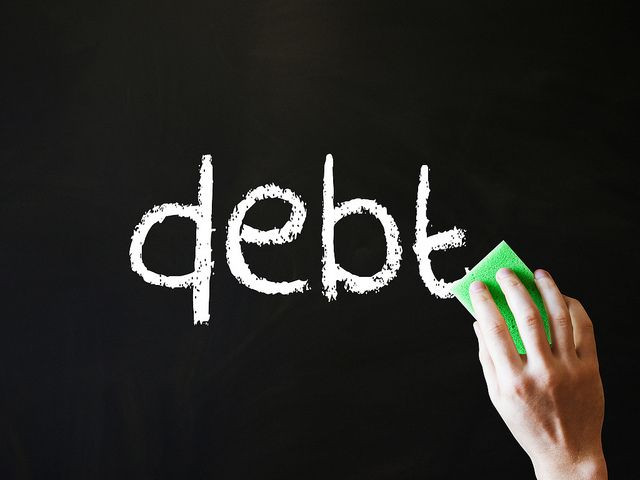Paying Off Debt: You'll Get In The Black Faster If You Pay Your Smaller Debts Off First

Most people owe a little (or a lot) of money for something, whether it be student loans, credit cards, or whatever else. Economic wisdom says to pay off your high-interest loans first, but new research shows that paying off smaller debts first may be a better idea. According to a new study published in the Journal of Marketing Research, paying off your smallest debts first can give you the motivation needed to successfully pay off even the worst of your debts.
"Winning what are known as 'small victories' by paying off small debts first can give consumers a real boost in eventually paying off all their debts," Professors Alexander L. Brown and Joanna N. Lahey of Texas A&M University said in a press release. They also said that meeting the smaller goal of paying off a debt can lead to wanting to pay off a larger debt.
For the study, the authors used two predictions: One was that people can motivate themselves to complete a larger task by completing a smaller one first, while the second was that the optimal arrangement of tasks is to have tasks of equal length. That means that the closer one gets to completing a task, the more motivated that person becomes. The experiment saw participants retype 150 10-character strings in Microsoft Excel.
Participants completed the retyping faster when the strings were broken up into parts in order of ascending length compared to descending or equal lengths. They sped up as they got to the end of the columns but slowed down at the beginning of the columns. This showed that motivation increased as participants got closer to the end of each column. They also completed the task faster when the strings were arranged from smallest to largest, thus confirming the “small victories” theory by Brown and Lahey.
"The increased motivational benefits of small victories may make it beneficial to pay off debts from smallest to largest in some cases, ignoring interest rates. However, there are limits on when this approach will be effective. The increase in motivation may not offset the additional interest accrued by not paying," Brown and Lahey said.
The first half of that last sentence in the quote is interesting. This research definitely isn’t the be all, end all to getting out of debt. The “small victories” theory is definitely one to be aware of and use, but you should always be aware of how much debt you have and how easily you can pay it off. If you don’t, you’ll find yourself back in the red.
Source: Brown AL, Lahey JN. Small Victories: Creating Intrinsic Motivation in Task Completion and Debt Repayment. Journal of Marketing Research. 2015.
Published by Medicaldaily.com



























